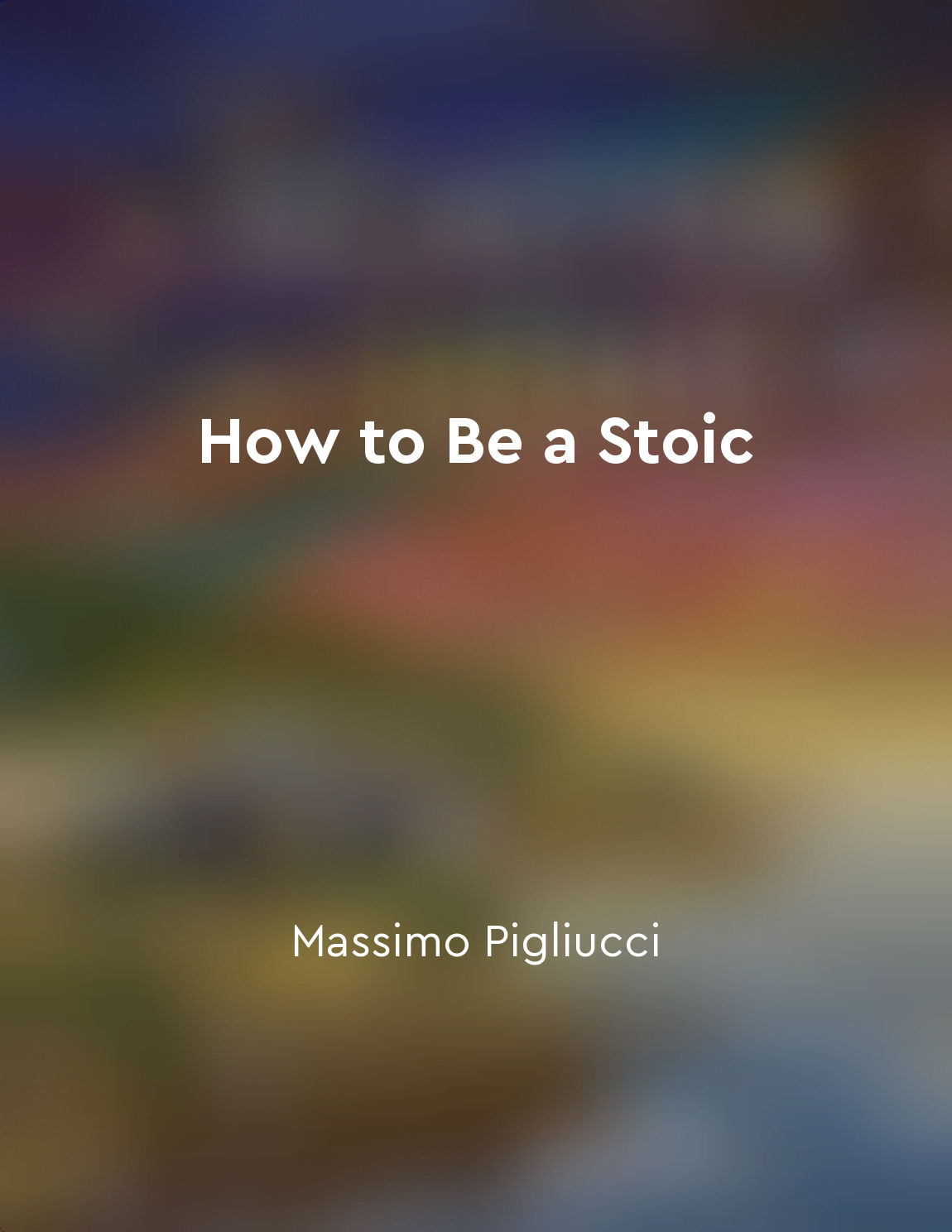Inner tranquility is attainable through Stoic principles from "summary" of Stoicism and Emotion by Margaret Graver
The Stoic philosophers of ancient Greece believed that inner tranquility was attainable by living according to their principles. These principles were based on the idea that we have the power to control our own emotions and reactions to external events. By cultivating a mindset of acceptance and resilience, one could achieve a state of inner peace even in the face of adversity. The Stoics emphasized the importance of reason and rationality in navigating the challenges of life. They believed that by examining our thoughts and beliefs, we could identify and challenge any irrational or harmful patterns. Through this process of self-reflection and self-awareness, we could cultivate a more balanced and harmonious inner life. One key Stoic principle was the practice of acceptance of the things we cannot change. By acknowledging the limits of our control and focusing instead on our response to events, we can free ourselves from unnecessary suffering and turmoil. This attitude of acceptance allowed the Stoics to face even the most difficult circumstances with equanimity and resilience. Another important aspect of Stoic philosophy was the idea of living in accordance with nature. This meant aligning our values and desires with the natural order of the universe, rather than fighting against it. By embracing the impermanence of life and the inevitability of change, we can find peace and contentment in the present moment.- The Stoics believed that inner tranquility was not dependent on external circumstances, but on our own thoughts and attitudes. By practicing mindfulness, self-discipline, and virtue, we can cultivate a sense of inner peace that is resilient to the ups and downs of life. This ancient wisdom continues to offer valuable insights into how we can find tranquility and fulfillment in our modern lives.
Similar Posts
Live with integrity and authenticity in all your actions
Living with integrity and authenticity means being true to ourselves and acting in alignment with our values and beliefs. It re...

Stoicism encourages us to cultivate inner peace and tranquility
Stoicism invites us to pursue a state of inner peace and tranquility as a central goal of our lives. This pursuit involves a de...
The goal is not to suppress emotions, but to understand them
The Stoics believed that the goal is not to suppress emotions, but to understand them. According to their philosophy, emotions ...

Stoicism teaches us to embrace challenges as opportunities for growth
Stoicism offers a unique perspective on how we should approach challenges in our lives. Instead of fearing or avoiding obstacle...

Stoicism emphasizes the importance of selfdiscipline
Stoicism places great emphasis on the cultivation of self-discipline as a means to achieve inner tranquility and freedom from n...
Stoics cultivate resilience and mental toughness
Stoicism emphasizes the importance of developing resilience and mental toughness in facing life's challenges. This philosophy t...

Stoics practice acceptance of the past and present moment
The Stoics' practice of acceptance involves a fundamental recognition of the reality of the past and the present moment. This r...

Practice mindfulness and awareness of the present moment
The Stoics were well aware of the importance of paying attention to the present moment, a practice that has now been embraced b...
Stoicism teaches the value of selfdiscipline
The Stoics believed that self-discipline was essential for living a good life. They saw self-discipline as a virtue that enable...

The Stoic perspective encourages individuals to reflect on their own mortality
The Stoic philosophy teaches us to confront the harsh realities of life head on, without flinching or turning away. One of the ...

